- Home
- Seanan McGuire
Pocket Apocalypse: InCryptid, Book Four Page 2
Pocket Apocalypse: InCryptid, Book Four Read online
Page 2
“Because they don’t.”
“Says the woman with snakes for hair. Watch and remember how much you have left to learn.” I stooped, picked up a rock, and lobbed it gently underhand into the middle of the circle. It hit with a soft thump.
For several seconds, nothing happened. Then the earth exploded as a dozen screaming yams uprooted themselves and began hopping wildly around, their fibrous mouths gaping open, their characteristic screams echoing through the marsh. They had no legs, and propelled themselves like tiny pogo sticks, their threadlike root systems whipping in the breeze generated by their forward motion.
After hopping several times around the clearing, they gathered on another patch of clear ground and burrowed back down into the earth with surprising speed, becoming a circle of standing leaves once again.
“Screaming yams,” I said. “If it were spring or summer, they’d have run away from us, but they’re getting ready to hibernate, so they’re counting on confusion to drive us away.”
“Works for me,” said Dee faintly.
I laughed.
Mapient, rodentlike cryptids which present as near-idenams weren’t a normal part of my work environment, they were a great bonus. After three years in Ohio, I was still discovering things about the state and its ecology that could surprise and delight me. That was good, since I’d never expected or planned to stay this long. When I had first come to the West Columbus Zoo to oversee the basilisk breeding program established by my predecessor in the back room of the reptile house—without the knowledge of the zoo administration, of course, since basilisks supposedly didn’t exist—I had thought I’d be there for maybe six months. A year, tops.
That hadn’t exactly worked out as planned. Since my arrival, I had opened diplomatic relations with the local gorgon enclave, nearly been turned to stone, cataloged the native fricken species, nearly been eaten by a lindworm, fed two people to the zoo’s alligator snapping turtle, nearly been killed by a Pliny’s gorgon/Greater gorgon hybrid, and helped my grandparents nurse my cousin Sarah back to something resembling health after she managed to telepathically injure herself saving my sister Verity’s life.
What was sad was that all of this was basically within my job description. I’m a cryptozoologist. As long as I’m working with things that science says don’t exist (including my cousin Sarah), I’m fulfilling my mandate, and serving the cryptid community.
Fortunately for me, there are a lot of ways to serve the cryptid community. Verity is basically a cryptid social worker, with a side order of kicking people’s teeth in when they refuse to acknowledge that “being a good neighbor” doesn’t mean eating the neighbors. My mother is a cryptid health professional, and my father is a chronicler and general historian. (My youngest sister, Antimony, is still trying to figure out what she wants to do with her life. For the moment, it mostly seems to be roller derby, the occasional monster hunting job, and getting pissed at our parents.) I’m a life scientist. My contributions are sometimes medical—when you’re working with a community that doesn’t exist in the eyes of the government, you don’t need to have gone to medical school as much as you need a solid understanding of nonhuman anatomy—but more often strictly scientific. If you need a basilisk bred or a stone spider relocated, I’m your man. And for the moment, I was the man in Ohio.
Dee was uncharacteristically quiet during the drive back to the zoo, sitting in my front passenger seat with her arms crossed and her eyes fixed on the road. If not for the low, constant hissing of the snakes concealed inside her wig, I would have wondered whether she’d figured out a way to turn herself to stone. (Dee is a Pliny’s gorgon, capable of petrifaction under the right circumstances. They’re immune to their own stony gaze, of course, but the idea of a gorgon looking in their rearview mirror and turning themselves into a statue was amusing enough to be worth considering.)
“Something up?” I asked as I turned off the freeway. Crow churred contentedly from the backseat, his belly full of squirrel and his feathers full of shredded leaves. Since both cats and birds love to self-groom, he was going to have a very satisfying afternoon ahead of him.
“I didn’t think they were real.” Dee’s voice was flat, dull, like she was answering a question during a bad performance review. “You told me they were real, and I thought you were messing with me.”
“Hey, it’s okay. No one knows everything until they learn about it. That’s the whole point of learning things, isn’t it? We go out, we learn, we know more. It’s cool.” I flashed what I hoped would come across as an encouraging smile. “Screaming yams are one of the more outré offerings nature has for us around here. Mobile vegetation is a lot less common than it used to be. It’s not even a Covenant thing, for once—they didn’t hunt the screaming yams into near-extinction, people just paved most of the migration routes. So you have to really know what you’re looking for.”
“I’ve lived here my whole life, Alex,” Dee said. The dullness dropped away, replaced by frustration. “My brother and I grew up on a farm. We should know about every kind of edible plant that grows in this state. We should be cultivating beds of those things if they’re as tasty as you say they are. We could be helping them to reestablish a viable population and filling our tables at the same time, and instead we’ve been rotating our crops and planting things that aren’t even native. We should have known. I should have known.”
“Huh.” I hadn’t considered the possible applications the gorgon community would have for screaming yams. “They’re endangered, but I know of five colonies currently growing in the local forests and marshes. We could transplant one of those to a dedicated bed once the ground freezes. They’ll seed at a rate of about six roots a year, and most of those don’t reach maturity, due to predation from the local animals. If you were willing to commit to only eating half the seedlings, and keeping the rest as, heh, ‘root stock,’ or releasing them back into the wild . . .”
“I’ll consult with our garden planners, but we should be able to do that,” said Dee. “You’ll help me find good, strong roots for the farm?”
“Yeah. I think everyone benefits from that.” Not the yams that would be eaten, not on a micro level, but on a macro level? The arrangement would allow more screaming yams to grow to maturity, and might even give them a chance at surviving for another hundred years. It was a gamble worth taking.
I pulled into my reserved parking space near the zoo gates and stopped the car. “You want to go on ahead?” I asked. “I need to get Crow out of the backseat, and that might take a while.”
Dee laughed. “See you at the reptile house,” she said. After a quick glance in the mirror to confirm that her wig was firmly seated, she was out of the car and heading for the zoo gates with the quick, efficient steps of a woman who had no time for whatever bullshit the guard at the gate might decide to throw her way. She didn’t look back. That was for the best. Our midday “field trips” were tolerated by the administration as long as they were connected to my research, but that tolerance would probably drop off dramatically if either one of us started giving off signs that we were secretly having an affair.
Not that we were secretly having an affair. Dee was happily married to the doctor of the local gorgon community, an imposing fellow named Frank, and I was equally happy in my relationship with the other visiting researcher attached to the West Columbus Zoo: Dr. Shelby Tanner, big cat specialist and potentially the most dangerous thing ever produced by the great continent of Australia.
I twisted in my seat, looking at Crow. “We’re here,” I said. “Office, Crow. Office. Can you do that?”
Crow continued preening his left wing, ignoring me.
I sighed. Chasing my griffin around the zoo grounds while I tried to keep him from being seen by anyone wasn’t my idea of a good time. At the same time, I couldn’t leave him in the car. Cryptid or not, he’d be killed if the car got too hot, just like a normal dog or cat—and even
if that didn’t happen, I didn’t feel like spending the evening cleaning griffin crap out of the upholstery.
“Office,” I said. “Treats.”
Crow lifted his head.
“Yeah, I thought that would get your attention. Go straight there, and you can have two liver cubes.” I got out of the car and opened the rear driver’s-side door. Crow took off like a shot, his vast black wings straining at first to gain altitude, and then leveling off into a glide. Anyone who happened to see him pass overhead would probably take him for a raven, their minds automatically editing out the long plume of his tail and mammalian shape of his lower body in the interests of not seeing something that they knew couldn’t possibly exist.
Sometimes it’s convenient to have a pet that no one believes in. I’d never be allowed to bring a cat to work every day, but since Crow “isn’t real,” no one’s ever reported him to the zoo management. Other times, I think it would be nice to stop hiding him from the world. Miniature griffins could be the next big trend in exotic pets.
Or maybe not. They did require a lot of special care.
The guard at the gate was new, and I didn’t remember his name. He checked my credentials, said, “Welcome back, Dr. Preston,” and waved me through. I smiled amiably and stepped inside, closing my eyes for a moment in regret. The old guard, Lloyd, had been a friendly man who’d always seemed happy to see me. Unfortunately, he’d also been a homicidal gorgon hybrid who’d resented humanity for shutting him out; he’d stabbed Shelby and tried to kill us both before I shot him dead in the forest near the gorgon community.
Still, he’d been a nice old man for a long time before that happened, and I missed him. Logic and loss aren’t always great friends. Sometimes we mourn for the things that hurt us. Sometimes, that’s okay.
School groups and small clusters of excited zoo goers clogged the paths between the entrance and the reptile house, all of them trying to get in one last sighting of our shy snow leopard or our playful young male orangutan before the weather turned bad and the zoo became a much less appealing destination. Ohio winters weren’t exactly conducive to open-air pathways and natural enclosures. Some of the animals enjoyed the snow. Others would spend the whole winter inside, glaring at anyone who dared to open a door and let the wind in. I wove my way around the people, smiling politely when they cast curious glances at my muddy boots and zoo ID, until my destination came into view: the low round shape of the reptile house. I sped up. Almost home.
Stepping into the reptile house was like stepping back in time, into a world where the rich, dark smell of snakes and lizards dominated the atmosphere. The overhead lights were low, allowing the individual enclosures to shine just a little brighter. Crunchy, our big alligator snapping turtle, floated in his tank directly in front of the door, like a promise of better things to come or a warning about not pissing off the residents.
There were a few people inside as well as outside, but most of the zoo’s visitors were eschewing the warm confines of the reptile house until later in the day, when the chill would drive them into any enclosed exhibits they could find, and getting a good position in front of our cobra enclosure would prove virtually impossible. I waved to Dee, who was wiping smears off the front of the rattlesnake enclosure, as I passed.
“You have company,” she said.
I paused. “Good company?”
“You could say that.” She grinned. I walked a little faster.
My office would normally have been used for the director of the reptile house. The zoo didn’t have one of those right now: instead, it had me, and since I was serving the same basic function, I got to use the space. The door was unlocked. I opened it cautiously, hoping that Dee’s definition of “good company” matched up with mine.
A blonde woman in zoo-issue khakis was sitting on the edge of my desk, her slouch hat pushed back on her head and her long, tanned legs crossed at the knee, so that one hiking boot-clad foot thumped against the desk’s edge. She was leaning back on one hand and scritching Crow on the back of the neck with the other. My temperamental pet’s eyes were half closed, and he was making small chirping noises in his contentment. As for the woman, she was smiling indulgently, like she’d known all along that all she had to do was show up and I would appear.
I stepped into the office and shut the door.
“Hello, Price boy,” said Shelby Tanner, her Australian accent pronounced in the way that meant she was about to ask me for something. I didn’t mind. Most of the things Shelby asked me for were okay by me. “You know much about werewolves?”
Well. That wasn’t what I’d been expecting.
Two
“We try to avoid words like ‘monster’ when we can. They tend to prejudice people. And yet, sometimes, ‘monster’ is the only word that fits.”
—Jonathan Healy
The reptile house of Ohio’s West Columbus Zoo, visiting researcher’s office
“HELLO, SHELBY.” I walked past her, using the need to close the window as a distraction while I swallowed my atavistic desire to turn and run away. It only took a few seconds, but that was long enough for me to mostly recover from the shock of her question. I flipped the latch and turned back to her. “So what do you want to know about werewolves?” I asked. I was proud of myself: my voice didn’t even break.
“Everything.” Shelby sobered, all traces of levity slipping away. “Sit down, will you? I need to talk to you.”
Those words just made the fear that already gripped my heart grow even stronger. “All right,” I said, still fighting to retain my composure. I snagged my desk chair, rolling it to where it would give me a clear view of her face before I sat down. She didn’t say anything. She just watched me. “What’s wrong?”
“That’s sort of encapsulated in the question, isn’t it?” She frowned. “Are you all right? You look shaken.”
“When my girlfriend comes to my office asking about werewolves, I get a little anxious.” I folded my hands on my knees to keep myself from fidgeting. “What’s going on?”
“I need you to tell me everything you know about werewolves,” said Shelby gravely.
I wanted to ask if there had been a local sighting, but I put the question out of my mind: there was no way she would be this calm if the danger were that close. Instead, I took a deep breath and said, “All right. First off, werewolves don’t exist as a species. They’re individuals infected with the lycanthropy-w virus, which we believe started as a therianthrope-specific form of rabies before jumping back into a nonshapeshifting population. Anything mammalian can be infected with lycanthropy-w, although it’s extremely rare for anything or anyone weighing less than ninety pounds to survive the first transformation, which tends to limit its living victims to humans, humanoids, and large mammals like horses or bears. Nonmammalian cryptids, like wadjet or cuckoos, can’t be infected; their biology isn’t compatible with the virus.”
Thank God for that. The idea of telepathic werewolves was terrifying enough to make me never want to sleep again.
Shelby’s frown deepened. “What do you mean, ‘anything mammalian’?”
“I mean it doesn’t just infect humans. Any mammal can catch it.”
“That’s—seriously? Oh, that’s just great. How deadly is it?”
“Lycanthropy-w is pretty hard to catch. It’s spread through direct fluid transfer only, so bites, blood, or saliva. And that’s a damn good thing, because every confirmed infection has eventually led to death—either through natural causes, when the strain of the transformations cause organ failure in the victim, or within a month of first change, when someone follows the trail back to the werewolf’s den and puts them out of their misery.”
“That’s what I was afraid you were going to say.” Shelby slouched, rubbing her forehead with one hand. “You got a valid passport?”
I frowned as the sense of dread grew. “I’ve got a few. Why?” H
aving multiple ways out of the country at all times was just common sense. It was unlikely that the Covenant of St. George would show up and chase me to Canada, but I needed to keep the option to run as open as I could.
“Good. We need to leave for Australia as soon as we can. My folks have said that cost isn’t an issue, which means they’re fronting the tickets for the both of us. They need me, and I need someone who’s got some idea of what we’re dealing with.” Shelby paused. “I didn’t ask if you’d come. Will you come?”
The words “what we’re dealing with” seemed to freeze the air around them, making the situation perfectly clear. I still raised a hand, gesturing for her to slow down, and said, “Hang on. Why, exactly, are we going to Australia?”
I knew what she was going to say. I still needed to hear the words. If there was any chance that I was wrong . . .
Shelby grimaced before she said weakly, “I suppose I didn’t say that either. We’re going to Australia because there’s an outbreak near Brisbane. Werewolves, Alex. Werewolves in Australia, which is not a place werewolves are meant to be. We’re an island ecosystem, we can’t handle that sort of thing as easily as a place that has more resiliency to its biosphere.”
I wasn’t wrong. “The biosphere of Australia can kick most other biospheres right out of the party,” I said. “Still, you’re right. The lycanthropy virus isn’t supposed to be there.” The thought was enough to make my stomach sour and my head spin. Rabies and lycanthropy had been kept out of Australia for centuries, thanks to careful border maintenance. If those borders were starting to fail, the whole continent could be at risk.
But that didn’t mean I had to be the one who took care of it. Werewolves terrified me, had terrified me since the one time I’d been forced to deal with a pack of them. They were worse than anything else I could think of in the cryptid world—worse even than petrifactors, like my basilisks, or telepathic predators, like my cousin and grandmother. All a cuckoo could do was twist you to their will and then kill you. All a basilisk or gorgon could do was turn you into lawn statuary.

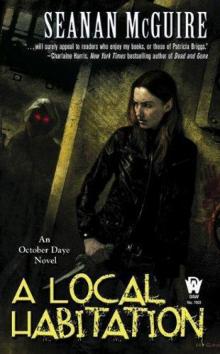 A Local Habitation
A Local Habitation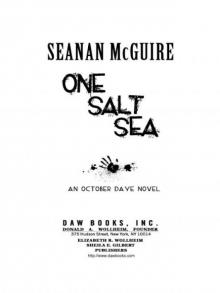 One Salt Sea
One Salt Sea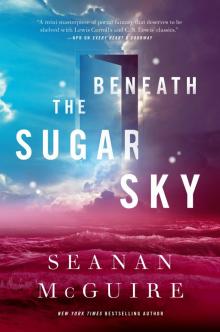 Beneath the Sugar Sky
Beneath the Sugar Sky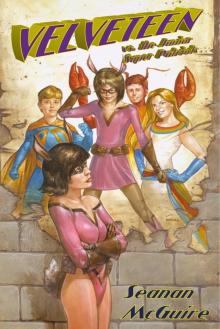 Velveteen vs. The Junior Super Patriots
Velveteen vs. The Junior Super Patriots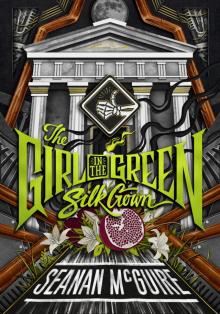 The Girl in the Green Silk Gown
The Girl in the Green Silk Gown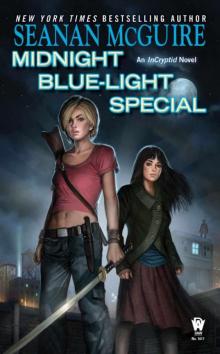 Midnight Blue-Light Special
Midnight Blue-Light Special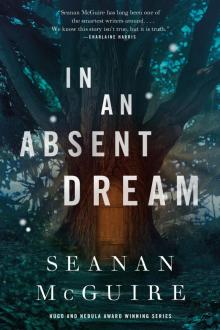 In an Absent Dream
In an Absent Dream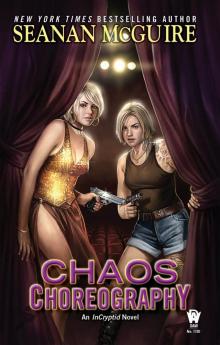 Chaos Choreography
Chaos Choreography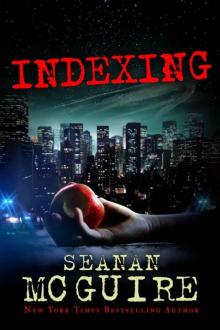 Indexing
Indexing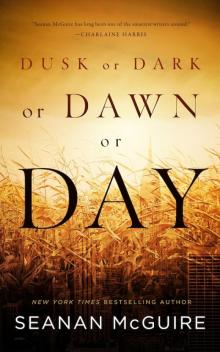 Dusk or Dark or Dawn or Day
Dusk or Dark or Dawn or Day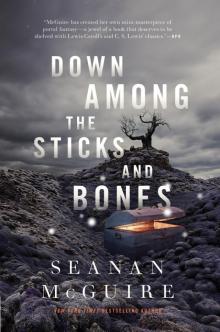 Down Among the Sticks and Bones
Down Among the Sticks and Bones The Razor's Edge
The Razor's Edge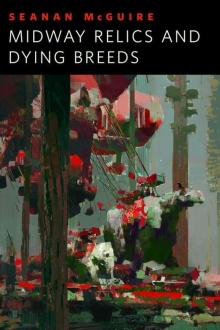 Midway Relics and Dying Breeds
Midway Relics and Dying Breeds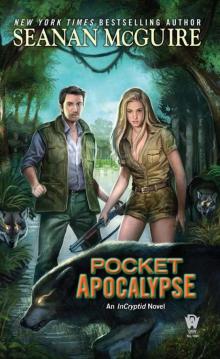 Pocket Apocalypse
Pocket Apocalypse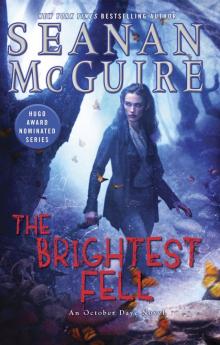 The Brightest Fell
The Brightest Fell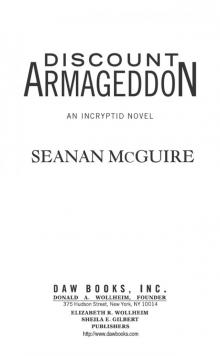 Discount Armageddon
Discount Armageddon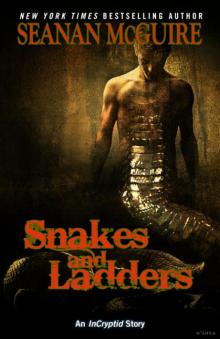 Snakes and Ladders
Snakes and Ladders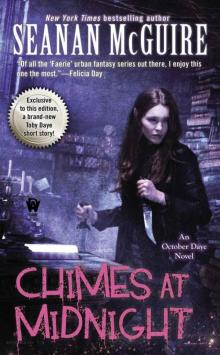 Chimes at Midnight
Chimes at Midnight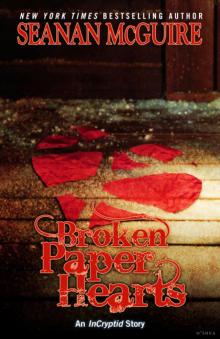 Broken Paper Hearts
Broken Paper Hearts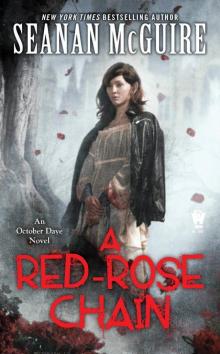 A Red-Rose Chain
A Red-Rose Chain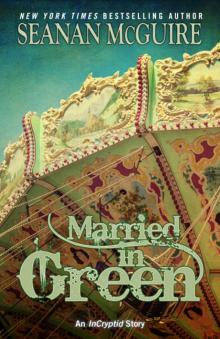 Married in Green
Married in Green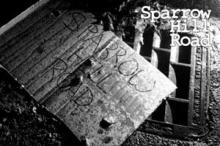 Sparrow Hill Road 2010 By Seanan
Sparrow Hill Road 2010 By Seanan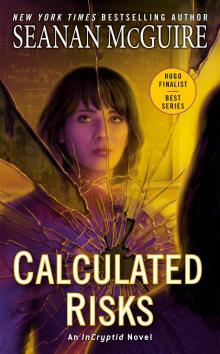 Calculated Risks
Calculated Risks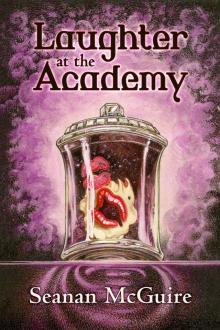 Laughter at the Academy
Laughter at the Academy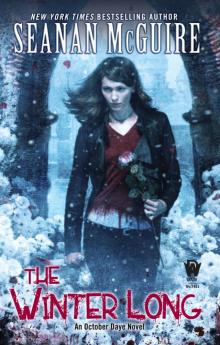 The Winter Long
The Winter Long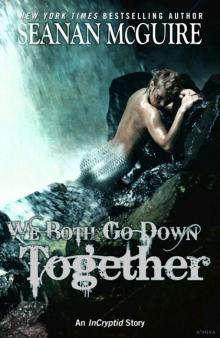 We Both Go Down Together
We Both Go Down Together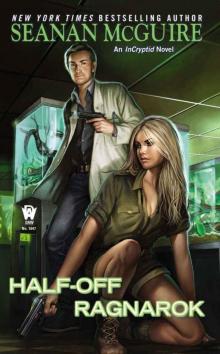 Half-Off Ragnarok
Half-Off Ragnarok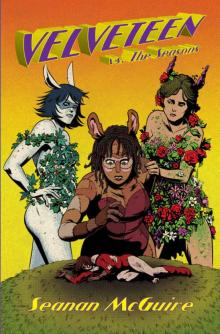 Velveteen vs. The Seasons
Velveteen vs. The Seasons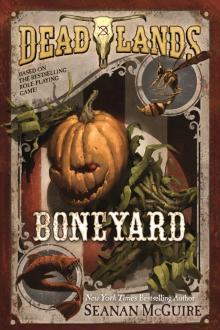 Boneyard
Boneyard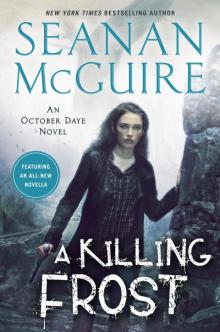 A Killing Frost
A Killing Frost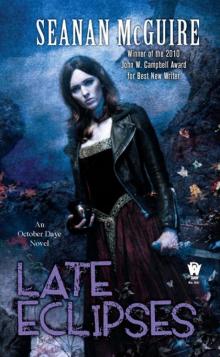 Late Eclipses
Late Eclipses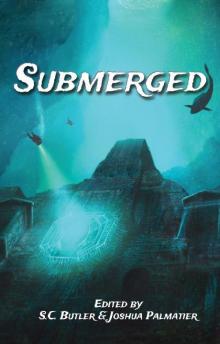 Submerged
Submerged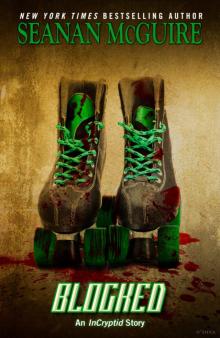 Blocked
Blocked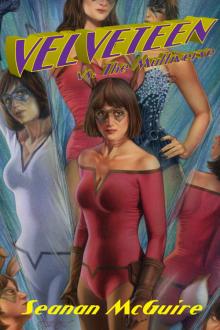 Velveteen vs. The Multiverse
Velveteen vs. The Multiverse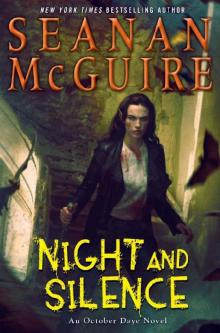 Night and Silence
Night and Silence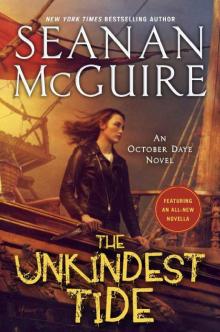 The Unkindest Tide (October Daye)
The Unkindest Tide (October Daye)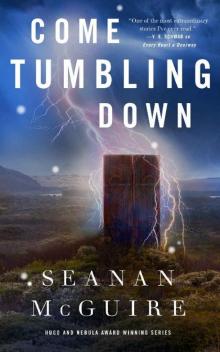 Come Tumbling Down (Wayward Children)
Come Tumbling Down (Wayward Children)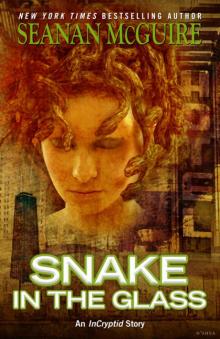 Snake in the Glass
Snake in the Glass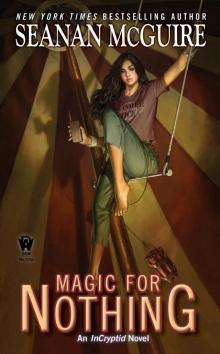 Magic for Nothing
Magic for Nothing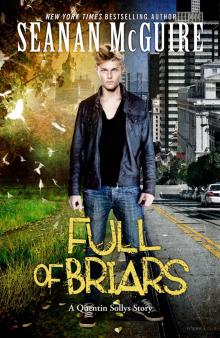 Full of Briars
Full of Briars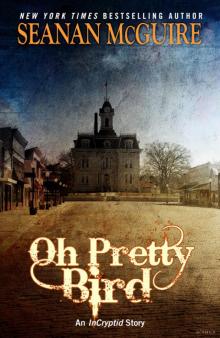 Oh Pretty Bird
Oh Pretty Bird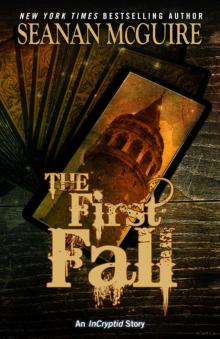 The First Fall
The First Fall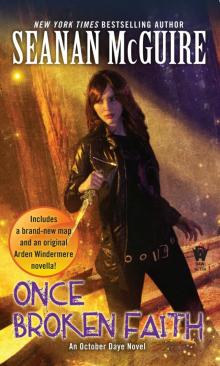 Once Broken Faith
Once Broken Faith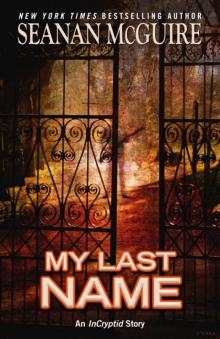 My Last Name
My Last Name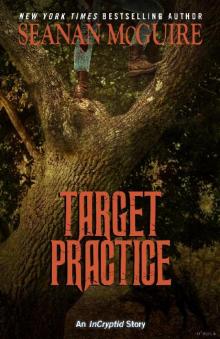 Target Practice
Target Practice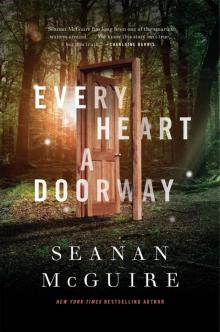 Wayward Children 01 - Every Heart a Doorway
Wayward Children 01 - Every Heart a Doorway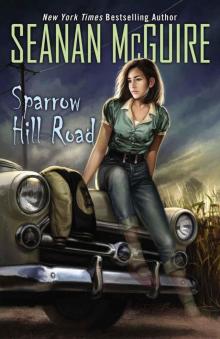 Sparrow Hill Road
Sparrow Hill Road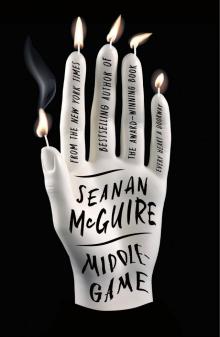 Middlegame
Middlegame Juice Like Wounds
Juice Like Wounds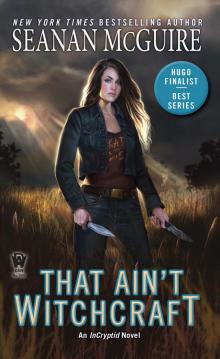 That Ain't Witchcraft
That Ain't Witchcraft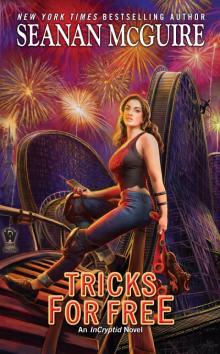 Tricks for Free
Tricks for Free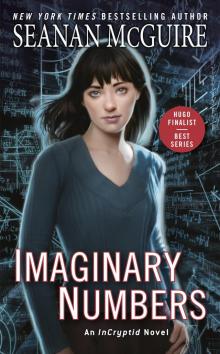 Imaginary Numbers
Imaginary Numbers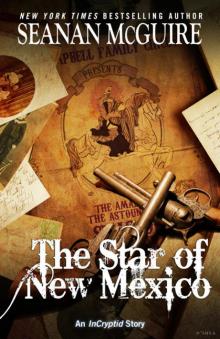 The Star of New Mexico
The Star of New Mexico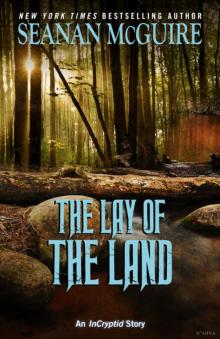 Lay of the Land
Lay of the Land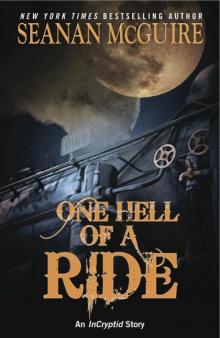 One Hell of a Ride
One Hell of a Ride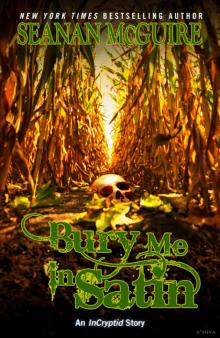 Bury Me in Satin
Bury Me in Satin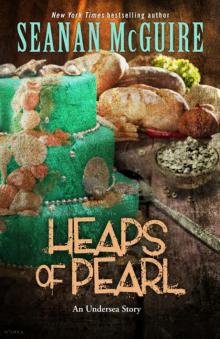 Heaps of Pearl
Heaps of Pearl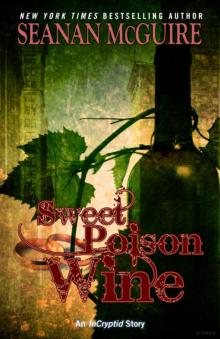 Sweet Poison Wine
Sweet Poison Wine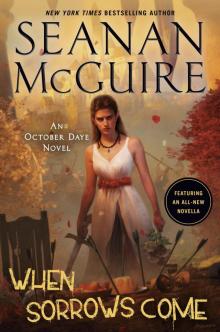 When Sorrows Come
When Sorrows Come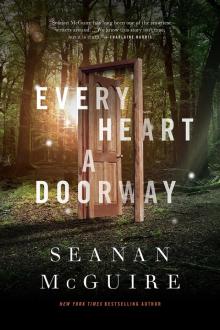 Every Heart a Doorway
Every Heart a Doorway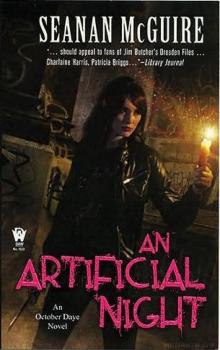 An Artificial Night - BK 3
An Artificial Night - BK 3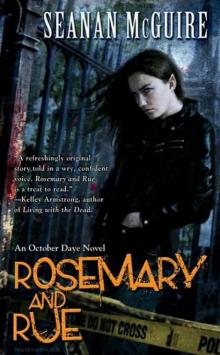 Rosemary and Rue
Rosemary and Rue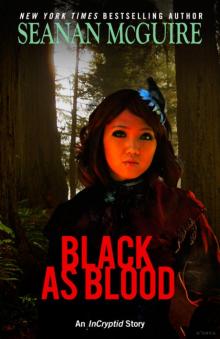 Black as Blood
Black as Blood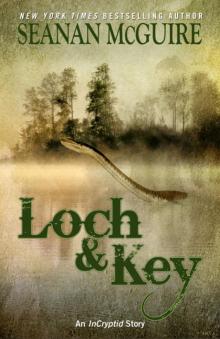 Loch and Key
Loch and Key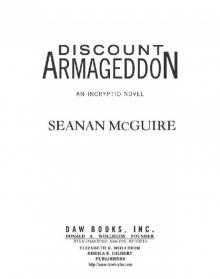 Discount Armageddon: An Incryptid Novel
Discount Armageddon: An Incryptid Novel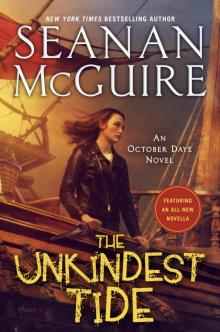 The Unkindest Tide
The Unkindest Tide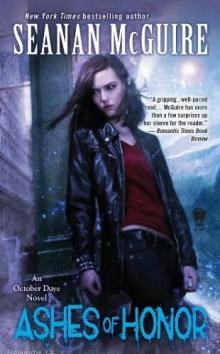 Ashes of Honor od-6
Ashes of Honor od-6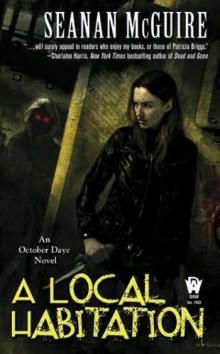 A Local Habitation od-2
A Local Habitation od-2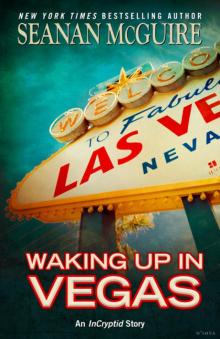 Waking Up in Vegas
Waking Up in Vegas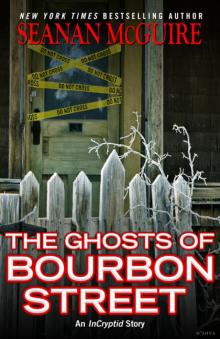 The Ghosts of Bourbon Street
The Ghosts of Bourbon Street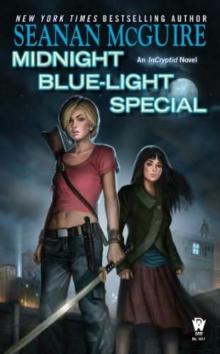 Midnight Blue-Light Special i-2
Midnight Blue-Light Special i-2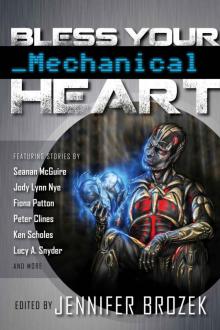 Bless Your Mechanical Heart
Bless Your Mechanical Heart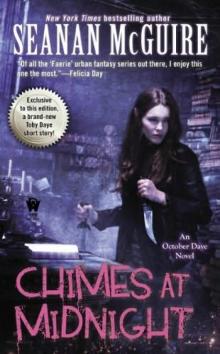 Chimes at Midnight od-7
Chimes at Midnight od-7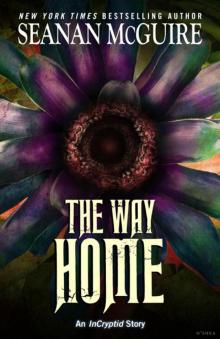 The Way Home
The Way Home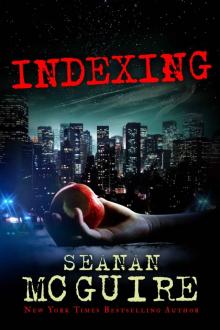 Indexing (Kindle Serial)
Indexing (Kindle Serial)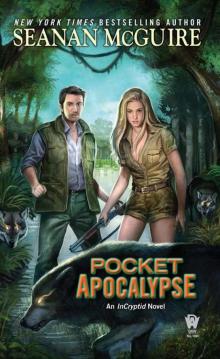 Pocket Apocalypse: InCryptid, Book Four
Pocket Apocalypse: InCryptid, Book Four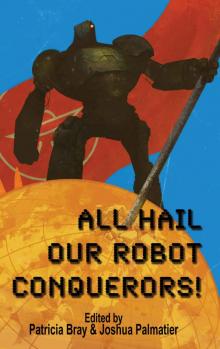 All Hail Our Robot Conquerors!
All Hail Our Robot Conquerors!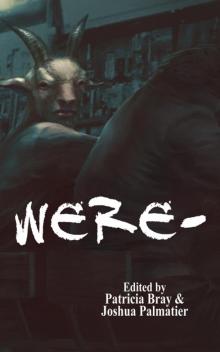 Were-
Were-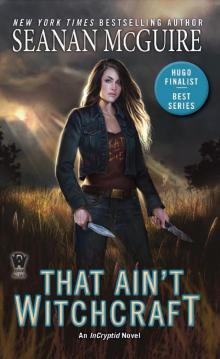 That Ain't Witchcraft (InCryptid #8)
That Ain't Witchcraft (InCryptid #8)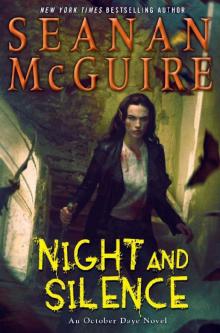 Night and Silence (October Daye)
Night and Silence (October Daye)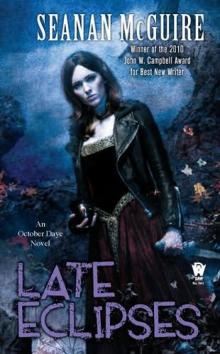 Late Eclipses od-4
Late Eclipses od-4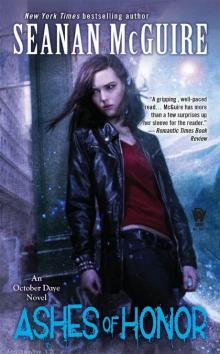 Ashes of Honor: An October Daye Novel
Ashes of Honor: An October Daye Novel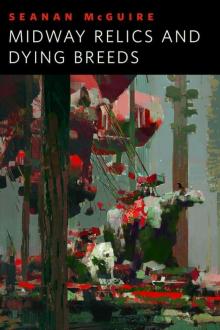 Midway Relics and Dying Breeds: A Tor.Com Original
Midway Relics and Dying Breeds: A Tor.Com Original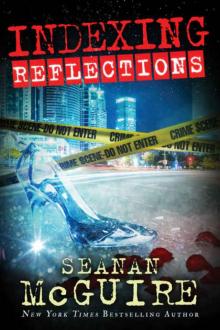 Indexing: Reflections (Kindle Serials) (Indexing Series Book 2)
Indexing: Reflections (Kindle Serials) (Indexing Series Book 2)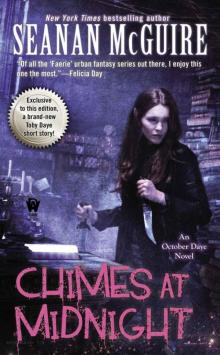 Chimes at Midnight: An October Daye Novel
Chimes at Midnight: An October Daye Novel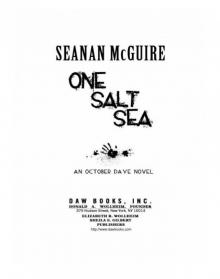 One Salt Sea: An October Daye Novel
One Salt Sea: An October Daye Novel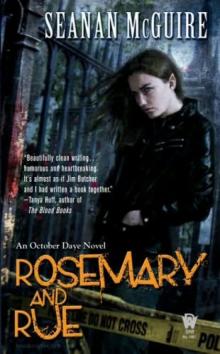 Rosemary and Rue od-1
Rosemary and Rue od-1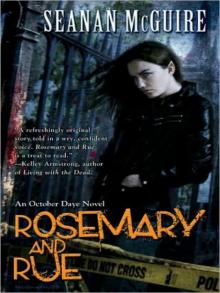 Rosemary and Rue: An October Daye Novel
Rosemary and Rue: An October Daye Novel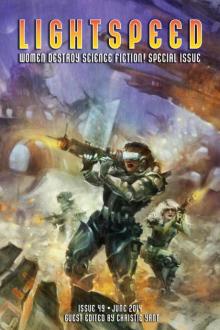 Lightspeed Magazine Issue 49
Lightspeed Magazine Issue 49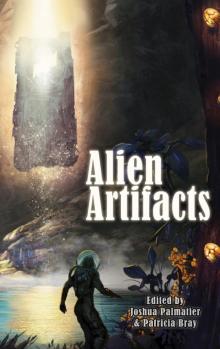 Alien Artifacts
Alien Artifacts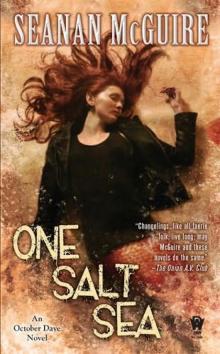 One Salt Sea od-5
One Salt Sea od-5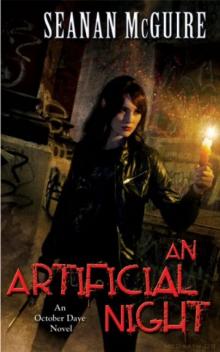 An Artificial Night od-3
An Artificial Night od-3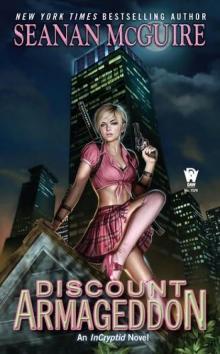 Discount Armageddon i-1
Discount Armageddon i-1